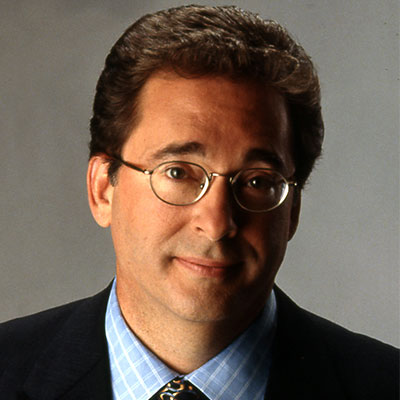Demolition Man
Thomas D. Yannucci, 50
Kirkland & Ellis, Washington
Legal Training:
University of Notre Dame, 1976Highest Jury Award or Known Settlement Against the Media: In June 1998, Yannucci exacted one of the most embarrassing and expensive settlements against any major American newspaper. He collected a reported $18 million, plus an above-the-fold, "1A" apology, from Gannett Co. Inc., owner of The Cincinnati Enquirer, on behalf of the big banana conglomerate, Chiquita Brands International Inc.
Career Highlight: Tough call. There's Chiquita. But Yannucci also orchestrated the 1993 on-air "Dateline" apology to General Motors Corp. after the NBC program rigged GM pickup trucks to explode. And, perhaps most notably, he was behind the "60 Minutes" tobacco debacle.
Legal Signature: The "post-publication package." An expensive tactic that is sure to be replicated by corporations in the years to come. The idea is to mitigate the impact of a damning story by an in-depth, point-by-point, high-profile campaign debunking the accusations. It's also designed to prevent any industry awards.
The Media's Achilles' Heel: The jury box, Yannucci says. "If you take it to the jury, the ordinary citizen begins [the trial] thinking the press is unfair."
Scouting Report: There is perhaps no single attorney in recent memory that has scarred the American media's psyche more than Yannucci. It is not the ubiquity of his litigation against the press--he spends only about a quarter of his time on media plaintiff clients, with few ever coming to public light--but the victories he has scored and how he scored them. The results have carved for Yannucci and his firm, Kirkland & Ellis, a reputation as probably the top media-plaintiff's firm in the country for corporations looking to fight the press.
At the heart of Yannucci's success is the realization that money doesn't matter. "Most large companies are not trying to make money off a libel suit," he says. His clients want public-relations control and, if it's too late, some redemption from critical reports.
Yannucci begins his work with the presumption that the news-gathering process can be shoddy and vulnerable. Back in 1993, he helped to reveal "Dateline" rigged GM pickup trucks to explode on side impacts, then forced the first prime-time retraction by a major news network for disingenuous news gathering. A few years later, Yannucci orchestrated a prepublication campaign when he kept CBS' "60 Minutes" from airing Jeffrey Wigand's accusations. Granted, it was nothing more than a for-hire, First Amendment hit. But Yannucci brought one of America's stalwart broadcast journalism shops to its knees--and on a claim of "tortious interference," a charge hardly ever threatened or heard of before. And then there's Chiquita. Yannucci was hired early on when the banana company first got word of Michael Gallagher's investigation. Early on, he became suspicious of the reporter and kept an eye on him, Yannucci says. A few weeks before publication, he caught Gallagher hacking into Chiquita's voice-mail system.
The three cases equate to a legal hat trick few, if any, in the media plaintiff's bar have scored. "All these guys are not sissies," Sandra Baron, executive director of the Libel Defense Resource Center, says of the news organizations that have tangled with Yannucci. "[They all] had public stories that they backed away from in a big and public way."
Yannucci's reputation is that of a savvy, behind-the-scenes strategist. He has yet to take a media trial to a jury. He also operates at a lower professional key than some of his colleagues. Instead of opting for an elaborate press conference, Yannucci may woo a competing publication to refute a story on his client. Or, "there might be a journalist who doesn't like the journalist who did the [original] story," he says. The idea is to stem "bad press," a philosophy epitomized in his latest tactic: the post-publication package, as endured by The Blade in Toledo, Ohio.
Yannucci represents Brush Wellman Inc., an Ohio company that manufactures beryllium, a metal that leaves a toxic dust when cut, but critical for the construction of nuclear weapons. The Blade's investigative reporter, Sam Roe, exposed that for decades workers at Brush and around the country were becoming deathly ill from beryllium and alleged the company, along with the federal government, covered it up.
Brush never sued Roe. But in response to The Blade's 1999 "Deadly Alliance" series, Yannucci orchestrated a 185-page company response that was sent to award committees for the Investigative Reporters and Editors, the National Press Club, and the Pulitzer Prizes. It is a breathtakingly exhaustive shot to undermine the paper's accusations--and to keep "Deadly Alliance" from garnering any laurels. (It's online, too: http://www.befacts.com). A year later, The Blade's series has more than weathered Yannucci's dissection. The federal government conceded its responsibility (two congressional investigations are under way). And Roe was a runner-up for the Pulitzer Prize for investigative journalism. Yannucci explains the report's purpose is "not to hound people, but to correct the record." Maybe so. But it also is a likely foreshadow; With Yannucci's success, his style is sure to be emulated, regularly putting news investigations--particularly those into corporations--under an unprecedented level of scrutiny.
Reprinted with permission from Editor & Publisher, 2000.


